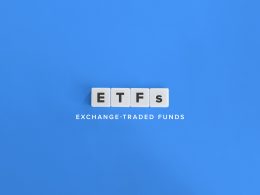by Will Keenan, Analyst, Smead Capital Management
Samuel Clemens’ pen name evokes the pinnacle of American literature, yet his financial legacy tells a very different story. While he captivated readers with wit and insight, his investments did not see similar success. Like the current era, the late nineteenth-century American investment landscape offered tantalizing new technologies – from mechanical typesetters to the light bulb – but lacked the safeguards and information networks today’s investors take for granted. Examining Mark Twain’s forays in investing highlights a fact of life that we often discuss at Smead Capital Management: excellence in one field does not necessarily translate into another. In the current era, the headlines of public figures in media, entertainment, sports, and elsewhere making millions in innovative technologies appear eerily reminiscent of Twain’s investments over a century ago.
The man’s literary genius was nothing short of extraordinary. He drew upon his experiences on Mississippi riverboats to create vivid characters and authentic dialogue, transforming regional dialects into universal stories. The Adventures of Tom Sawyer and Adventures of Huckleberry Finn remain cornerstones of American literature – celebrated for their humor, social critique, and narrative innovation. In addition to his classic novels, Twain wrote some of the first travelogues, including my personal favorites, The Innocents Abroad and Roughing It. Beyond the written word, Twain commanded lucrative lecture tours and developed popular patented novelties, demonstrating sharp commercial instincts – at least when it came to marketing his intellectual property.
Twain’s forays into personal investing, on the other hand, resulted in the near opposite of his literary success. He notoriously invested $150,000 ($5M-$6M today) into the Paige Compositor, a mechanical typesetter that never achieved reliable operation. His publishing firm, Charles L. Webster & Co., suffered from mismanagement and uneven titles, forcing him into bankruptcy protection in 1894. Other speculative stakes in telegraph ventures, engraving processes, and railroads likewise collapsed, leaving him heavily indebted and eventually bankrupt.
In his defense, Twain did not have access to today’s bespoke wealth and family office services, let alone a simple mutual fund. The greatest investors of his day, such as Hetty Green, invested primarily via their personal accounts. The fund management business at the time was in its infancy and primarily existed in the more developed markets of Great Britain. Twain was not alone in his investment foibles. Other American celebrities at the time, like the legendary promoter PT Barnum and Civil War hero and President Ulysses S. Grant, suffered similar tragic results.
Today, luminaries in non-investing fields have fewer excuses for not investing with a long-term, diversified approach. Major investment and advisor firms we work with have dedicated groups of professionals who work tirelessly to help celebrities reach their investing goals. An early warning for the pitfalls of such cavalier behavior was seen in the FTX bankruptcy of 2022.
Ultimately, Twain’s financial follies remind us that a long-term, diversified approach could have been a key ingredient to long-term investment success. Had he been alive today, we at Smead Capital Management, as great admirers of his work, would welcome him as a fellow investor! While we have not seen the tide go out just yet in the current market cycle, we believe that as in Twain’s case, much will be exposed.
Play The Long Game,

William Keenan
The information contained in this missive represents Smead Capital Management’s opinions, and should not be construed as personalized or individualized investment advice and are subject to change. Past performance is no guarantee of future results. Will Keenan, Analyst, wrote this article. It should not be assumed that investing in any securities mentioned above will or will not be profitable. Portfolio composition is subject to change at any time and references to specific securities, industries and sectors in this letter are not recommendations to purchase or sell any particular security. Current and future portfolio holdings are subject to risk. In preparing this document, SCM has relied upon and assumed, without independent verification, the accuracy and completeness of all information available from public sources. A list of all recommendations made by Smead Capital Management within the past twelve-month period is available upon request. ©2025 Smead Capital Management, Inc. All rights reserved.
This Missive and others are available at www.smeadcap.com













